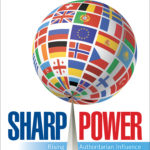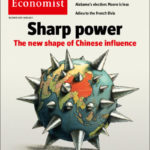Beijing’s influence operations provide conclusive evidence that the United States faces a struggle with two “revisionist” powers, Russia and China, former National Security Adviser HR McMaster argues in his new book, “Battlegrounds: The Fight to Defend the Free World.” But when it comes to election interference, “Russia is the primary problem in this area,” he said flatly.
Philippine President Rodrigo Duterte’s crackdown on Facebook has exposed the troubling advent of China-backed disinformation networks, underscoring the threat of “sharp power” operations by foreign powers ahead of the Southeast Asian country’s own presidential elections in 2022, notes Richard Heydarian, an Asia-based academic, columnist and author of “The Rise of Duterte: A Populist Revolt Against Elite Democracy” and the “The Indo-Pacific: Trump, China and the New Struggle for Global Mastery.”
Last week, the social media company upped the ante by targeting dozens of accounts based in the Philippines and China that were engaged in “deceptive methods.” According to Nathaniel Gleicher, head of Facebook’s Security Policy, “we regularly see these networks using pages that don’t fully disclose who’s behind them,” he writes for The Nikkei Review:

National Endowment for Democracy (NED)
As many as 57 personal accounts and 31 public pages on Facebook, as well as 20 Instagram accounts, were suspended for engaging in “coordinated inauthentic behavior.” Namely, the systematic deployment of “fake accounts to evade enforcement, post content, comment and manage pages.” ….The company’s latest crackdown in the Philippines also involved over 150 suspicious accounts based in China, advancing pro-Beijing disinformation on sensitive geopolitical issues such as the South China Sea disputes and Hong Kong; denigrating liberal media personalities and platforms; and support for Sara Duterte’s possible candidacy in the 2022 presidential election.
In the absence of proactive counter-disinformation efforts by Facebook and host governments, fragile democracies such as the Philippines will be left hopelessly at the mercy of right-wing populists and authoritarian superpowers, adds Heydarian. RTWT
 Clumsy acquisitions of media outlets and subsequent unsubtle shifts in editorial lines on China led to a backlash against Beijing’s strong-arm tactics in a country that still remembers fawning communist party mouthpieces, writes Ido Vock, international correspondent for the New Statesman:
Clumsy acquisitions of media outlets and subsequent unsubtle shifts in editorial lines on China led to a backlash against Beijing’s strong-arm tactics in a country that still remembers fawning communist party mouthpieces, writes Ido Vock, international correspondent for the New Statesman:
As public opinion in other European nations turns against China, the Czech experience is a useful corrective to the idea that statecraft in a one-party state is ruthlessly effective and can be used to bend small countries to its will. Czechs long bristled against influence from one communist superpower, rising up against the Soviet Union during the Prague Spring in 1968.
“China, like Russia, does not understand the multi-layered democracy that we have in Europe,” said Prague’s mayor, Zdenek Hrib. “If there is one thing Czechs hate, it’s being told what to do.” RTWT
When Chinese influence fails https://t.co/FHOpIC4j6e
— Democracy Digest (@demdigest) October 2, 2020







